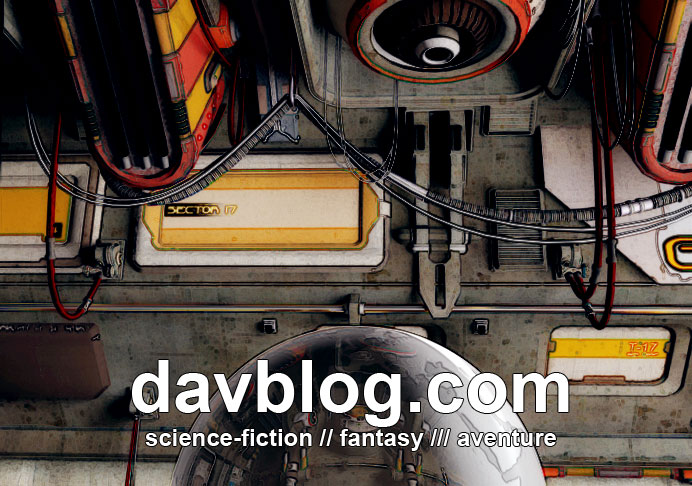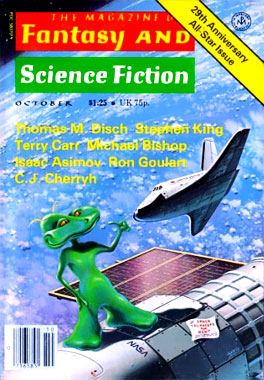
The Dark Tower 1: The Gunslinger (1978)
Adapté au cinéma dans La Tour sombre (février 2017, The Dark Tower)
Attention, ce roman existe au moins en versions : une série de six nouvelles de 1978 à 1981, le recueil de 1983, la version révisée et augmentée de 2003.
Sorti aux USA de octobre 1978 à novembre 1981 dans The Magazine of Fantasy and Science-Fiction.
Sorti aux USA en 1982 chez DONALD M. GRANT US (grand format)
Sorti en France en 1991 chez J'AI LU (poche, traduction de Gérard Lebec)
Sorti aux USA en juillet 2003 chez SIGNET US (poche, texte révisé et augmenté)
Sorti en France en 2004 chez J'AI LU FR (semi-poche, texte révisé, nouvelle traduction de Marie de Prémonville)
De Stephen King.
Comprend les nouvelles suivantes :
Le Pistolero (1978, The Gunslinger, paru dans The Magazine Of Fantasy And Science-Fiction d'Octobre 1978)
Le Relais (1980, The Way Station, paru dans The Magazine Of Fantasy And Science-Fiction d'avril 1980)
L'Oracle et les Montagnes (1981, The Oracle and the Mountains, paru dans The Magazine Of Fantasy And Science-Fiction de Février 1981)
Les Lents Mutants (1981, The Slow Mutants, paru dans The Magazine Of Fantasy And Science-Fiction de Juillet 1981)
Le Pistolero et l'Homme en Noir (1981, The Gunslinger and the Dark Man, paru dans The Magazine Of Fantasy And Science-Fiction de Novembre 1981).
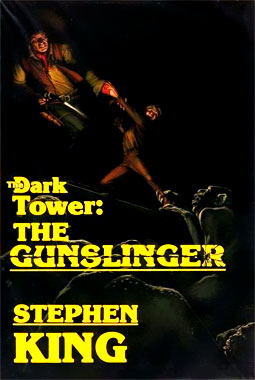
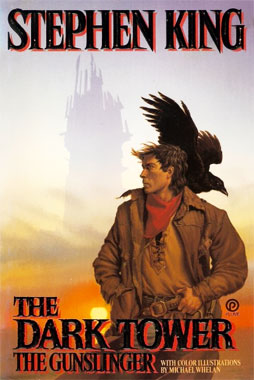
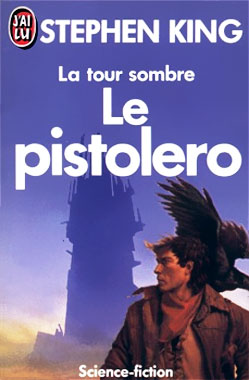
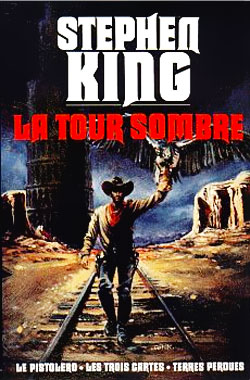
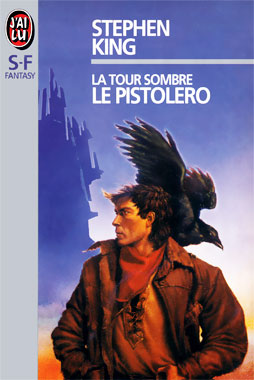
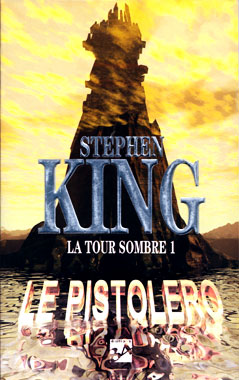
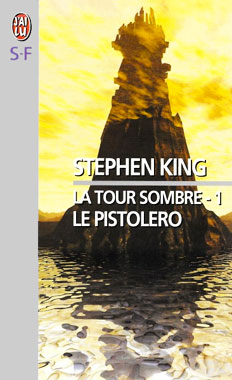
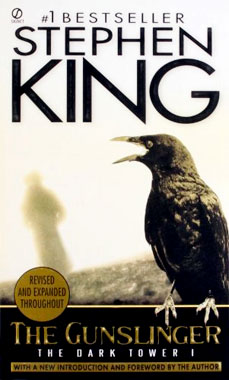
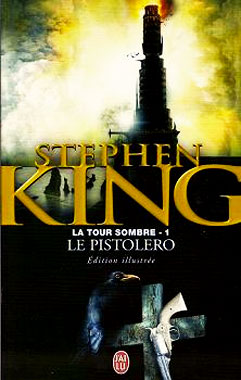
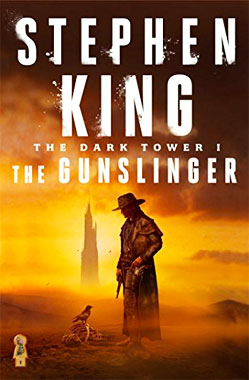
***
(Texte original non révisé de 1982)
THE GUNSLINGER
The man in black fled across the desert, and the gunslinger followed.
The desert was the apotheosis of all deserts, huge, standing to the sky for what might have been parsecs in all directions. White; blinding; waterless; without feature save for the faint, cloudy haze of the mountains which sketched themselves on the horizon and the devil-grass which brought sweet dreams, nightmares, death. An occasional tombstone sign pointed the way, for once the drifted track that cut its way through the thick crust of alkali had been a highway and coaches had followed it. The world had moved on since then. The world had emptied.
The gunslinger walked stolidly, not hurrying, not loafing. A hide waterbag was slung around his middle like a bloated sausage. It was almost full. He had progressed through the khef over many years, and had reached the fifth level. At the seventh or eighth, he would not have been thirsty; he could have watched own body dehydrate with clinical, detached attention, watering its crevices and dark inner hollows only when his logic told him it must be done. He was not seventh or eighth. He was fifth. So he was thirsty, although he had no particular urge to drink. In a vague way, all this pleased him. It was romantic.
Below the waterbag were his guns, finely weighted to his hand. The two belts crisscrossed above his crotch. The holsters were oiled too deeply for even this Philistine sun to crack. The stocks of the guns were sandalwood, yellow and finely grained. The holsters were tied down with rawhide cord, and they swung heavily against his hips. The brass casings of the cartridges looped into the gun belts twinkled and flashed and heliographed in the sun. The leather made subtle creaking noises. The guns themselves made no noise. They had spilled blood. There was no need to make noise in the sterility of the desert.
His clothes were the no-color of rain or dust. His shirt was open at the throat, with a rawhide thong dangling loosely in hand-punched eyelets. His pants were seam-stretched dungarees.
He breasted a gently rising dune (although there was no sand here; the desert was hardpan, and even the harsh winds that blew when dark came raised only an aggravating harsh dust like scouring powder) and saw the kicked remains of a tiny campfire on the lee side, the side which the sun would quit earliest. Small signs like this, once more affirming the man in black’s essential humanity, never failed to please him. His lips stretched in the pitted, flaked remains of his face. He squatted.
He had burned the devil-grass, of course. It was the only thing out here that would burn. It burned with a greasy, flat light, and it burned slow. Border dwellers had told him that devils lived even in the flames. They burned it but would not look into the light. They said the devils hypnotized, beckoned, would eventually draw the one who looked into the fires. And the next man foolish enough to look into the fire might see you.
***
(traduction de Gérard Lebec, 1991 - texte original non révisé)
LE PISTOLERO
L'homme en noir fuyait à travers le désert et le pistolero le poursuivait.
De tous les déserts ce désert était l'apothéose, immensément posé sous le ciel et couvrant jusqu'à plusieurs parsecs en tous sens. Blanc ; aveuglant ; aride ; sans rien pour le rompre sinon la trainée brumeuse des montagnes se découpant sur l'horizon et l'herbe du diable, porteuse de songes délicieux, puis de cauchemars, et de mort. Une pierre tombale, de temps à autre, montrait la direction à prendre, car cette piste tracée dans l'épaisse croûte d'alcali avait été jadis une route fréquentée. Le monde avait changé depuis. Le monde s'était vidé.
***
(Texte original révisé de 2003)
CHAPTER ONE
The Gunslinger
I
The man in black fled across the desert, and the gunslinger followed.
The desert was the apotheosis of all deserts, huge, standing to the sky for what looked like eternity in all directions. It was white and blinding and waterless and without feature save for the faint, cloudy haze of the mountains which sketched themselves on the horizon and the devil-grass which brought sweet dreams, nightmares, death. An occasional tombstone sign pointed the way, for once the drifted track that cut its way through the thick crust of alkali had been a highway. Coaches and buckas had followed it. The world had moved on since then. The world had emptied.
The gunslinger had been struck by a momentary dizziness, a kind of yawing sensation that made the entire world seem ephemeral, almost a thing that could be looked through. It passed and, like the world upon whose hide he walked, he moved on. He passed the miles stolidly, not hurrying, not loafing. A hide waterbag was slung around his middle like a bloated sausage. It was almost full. He had progressed through the khef over many years, and had reached perhaps the fifth level. Had he been a Manni holy man, he might not have even been thirsty; he could have watched his own body dehydrate with clinical, detached attention, watering its crevices and dark inner hollows only when his logic told him it must be done. He was not a Manni, however, nor a follower of the Man Jesus, and considered himself in no way holy. He was just an ordinary pilgrim, in other words, and all he could say with real certainty was that he was thirsty. And even so, he had no particular urge to drink. In a vague way, all this pleased him. It was what the country required, it was a thirsty country, and he had in his long life been nothing if not adaptable.
Below the waterbag were his guns, carefully weighted to his hands; a plate had been added to each when they had come to him from his father, who had been lighter and not so tall. The two belts crisscrossed above his crotch. The holsters were oiled too deeply for even this Philistine sun to crack. The stocks of the guns were sandalwood, yellow and finely grained. Rawhide tie-downs held the holsters loosely to his thighs, and they swung a bit with his step; they had rubbed away the bluing of his jeans (and thinned the cloth) in a pair of arcs that looked almost like smiles. The brass casings of the cartridges looped into the gunbelts heliographed in the sun. There were fewer now. The leather made subtle creaking noises.
His shirt, the no-color of rain or dust, was open at the throat, with a rawhide thong dangling loosely in hand-punched eyelets. His hat was gone. So was the horn he had once carried; gone for years, that horn, spilled from the hand of a dying friend, and he missed them both.
He breasted a gently rising dune (although there was no sand here; the desert was hardpan, and even the harsh winds that blew when dark came raised only an aggravating harsh dust like scouring powder) and saw the kicked remains of a tiny campfire on the lee side, the side the sun would quit earliest. Small signs like this, once more affirming the man in black’s possible humanity, never failed to please him. His lips stretched in the pitted, flaked remains of his face. The grin was gruesome, painful. He squatted.
His quarry had burned the devil-grass, of course. It was the only thing out here that would burn. It burned with a greasy, flat light, and it burned slow. Border dwellers had told him that devils lived even in the flames. They burned it but would not look into the light. They said the devils hypnotized, beckoned, would eventually draw the one who looked into the fires. And the next man foolish enough to look into the fire might see you.
***
